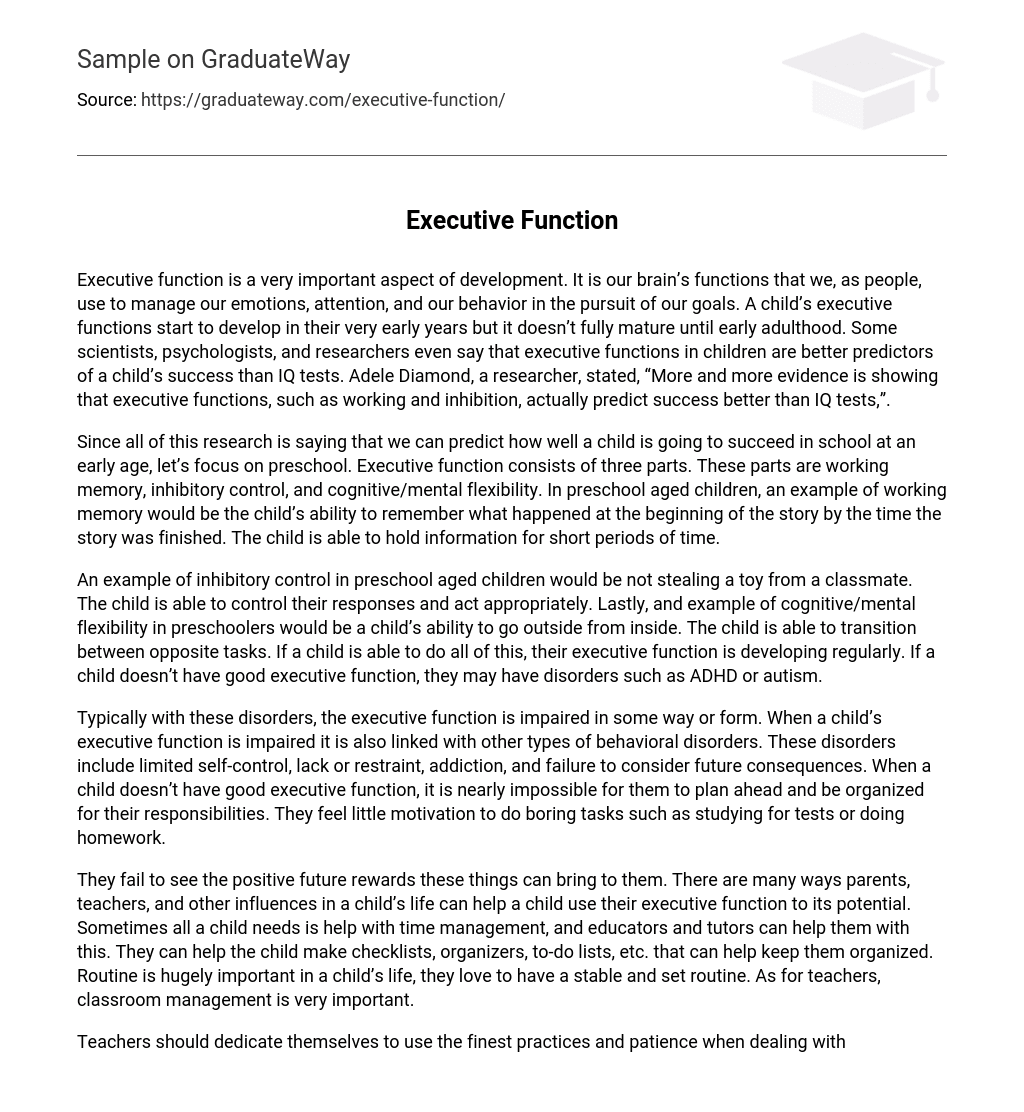Executive function is a crucial aspect of development. It refers to the brain’s functions that we use to manage our emotions, attention, and behavior in pursuit of our goals. While a child’s executive functions begin developing in their early years, it does not fully mature until early adulthood. Some scientists, psychologists, and researchers suggest that a child’s executive functions are better predictors of success than IQ tests. Adele Diamond, a researcher, stated that More and more evidence is showing that executive functions such as working memory and inhibition actually predict success better than IQ tests.
Research suggests that a child’s potential for success in school can be predicted at an early age. Therefore, it is important to focus on preschool education. Executive function comprises three components: working memory, inhibitory control, and cognitive/mental flexibility. For preschool-aged children, an instance of working memory would be their ability to recollect the beginning of a story by the time it concludes. This demonstrates their capability to retain information for short periods.
An example of inhibitory control in preschool-aged children is not stealing a toy from a classmate. The child can control their responses and act appropriately. An example of cognitive/mental flexibility in preschoolers is the ability to transition between opposite tasks, such as going outside from inside. If a child can do all of this, their executive function is developing regularly. However, if a child doesn’t have good executive function, they may have disorders such as ADHD or autism.
Typically, these disorders impair executive function in some way or form. When a child’s executive function is impaired, it is often linked with other types of behavioral disorders such as limited self-control, lack of restraint, addiction, and failure to consider future consequences. Without good executive function, it becomes nearly impossible for children to plan ahead and organize their responsibilities. They may feel little motivation to complete mundane tasks like studying for tests or doing homework.
Many children fail to see the positive future rewards that executive function skills can bring them. However, parents, teachers, and other influential figures in a child’s life can help them reach their potential. One way to do this is by assisting with time management. Educators and tutors can create checklists, organizers, and to-do lists for children to help keep them organized. Routine is also crucial for a child’s development as they thrive on stability and predictability. Additionally, classroom management is essential for teachers in creating a conducive learning environment.
Teachers should dedicate themselves to using the finest practices and exercising patience when dealing with their students in the classroom. There are always ways to help children who have fallen behind with their executive functions, especially if it is caught early. The ability to recognize this is crucial. If an adult waits too long to address these skills, the child falls further behind in school, leading to a lack of overall success in their academic career. Patience and understanding are key, along with a desire to help all children achieve their best with executive functions!





